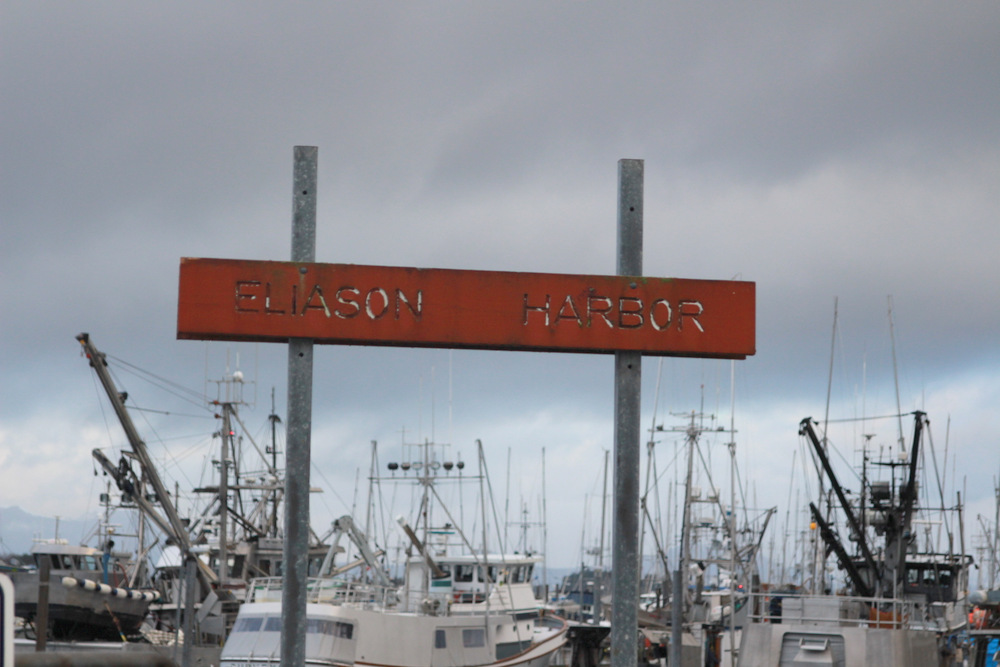
Rates for public utilities could increase more than usual this year. When the Sitka Assembly met on February 17, it reviewed the budgets for the city’s enterprise funds – like electricity and water that users pay for – and found that inflation was pushing expenses above the increases already built into the regular rate structure.
Each year it’s the Assembly’s job to set the rates for the city’s enterprise funds. In the last couple of years, they’ve kept rate increases hovering around 2% for Sitka’s water, wastewater and electric utility customers.
But this budget cycle is different. Prices have risen significantly across the country – over the last year the Consumer Price Index increased by 7.5 percent, and inflation hasn’t been at this rate since the early ‘80s.
So that puts the Assembly in a tricky spot. The standard 2% increase won’t keep the funds ‘healthy’ to quote the city’s finance director. But Assembly member Kevin Mosher was wary of passing on steep cost increases to Sitkans who are already feeling the sting of inflation.
“I understand we need to keep these funds healthy, but we have to realize…the people’s ability to digest these things,” Mosher said. “People have had it rough the past couple of years. Very rough. And with the high inflation as you mentioned, that means people are having less to use for food and pay these bills. And I think some jobs are increasing their wages, but not all of them at that speed. So effectively people are losing money, daily.”
City staff presented several options for each fund, with proposed rate increases anywhere from 2 percent to 8 percent. Finance director Melissa Haley said the most complicated fund is Harbors. Moorage rates have gone up more quickly than the other enterprise funds, as the assembly has tried to play catch up after years of no increases, and continues to plan for major harbor replacement within the next decade. Assembly member Crystal Duncan asked for clarification around the staff’s recommended rate increases, which ranged from 5 to 9 percent.
“I just want to make sure that this fund, all we’re doing is we’re trying to keep it as close to– it’s not healthy. We’re not going to take it into healthy range with these numbers, we’re just trying to keep it as close as we can to,” Duncan said, then paused. “How would you sum it up?”
“I would say that. I mean, this fund could use every penny it can get,” Haley replied.
Of the three options for harbors, the Assembly favored option 2, which would raise harbor rates by just over 6 percent in FY23. This passed on a 5-2 vote with members Thor Christianson and Dave Miller opposed. For water, the assembly favored option 3, which includes a 5 percent increase in FY23. That passed 4-2 with members Rebecca Himschoot and Mayor Steven Eisenbeisz opposed. For wastewater, the group preferred option 2- including an 8 percent increase this year. And for the electric fund, the group favored option 2, which included a 4 percent increase in FY23. Both passed 4-2 with members Mosher and Eisenbeisz opposed.
The solid waste fund has its challenges, too. Sitka ships all of its waste off the island on Alaska Marine Lines through the contractor Republic Services. The cost to ship garbage was rising even before the current inflationary trend, and recently it’s become even more expensive as AML tries to curb the risk of shipping fires at sea. To get ahead of the rising costs, Mayor Eisenbeisz suggested they raise solid waste rates by 10 percent.
“Every indication that I’ve been seeing indicates that the cost of shipping is going to go up. The fuel surcharge on AML on a business rate right now is 15%. I believe that the cost of oil is going to continue to rise, therefore the price of fuel. I don’t believe that AML is going to be reducing or shipping rates anytime soon,” Eisenbeisz said.
“And I want to get ahead of that,” he continued. “I want this fun to have some money, because this has always been the one that doesn’t even break even. This has been the fund that has to borrow from other funds continuously. And I don’t think that that’s a reasonable solution anymore.”
Eisenbeisz’s motion failed, and the assembly went instead with a staff recommendation to raise solid waste rates by over 7 percent next year.
Although the assembly indicated its preferences with city staff, the rate increases they discussed are far from finalized. Assembly members can vote to adjust the rates any time between now and when the final budget is passed later this spring.






























